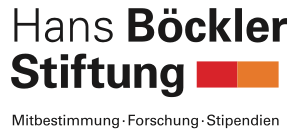Column
Who will fight for the 'good jobs' economy?
As a result of the global economic collapse in 2008, virtually all developed economies, including in Germany, have seen dramatic changes in how people work and the quality of jobs. How will the digital economy affect future jobs? How can Germany create a “good jobs” economy?
Freelance Nation, USA
In the aftermath of the global collapse of 2008 and the eurozone crisis of 2010, virtually all developed economies lost millions of jobs and suffered a decline in job quality. In the United States, from the lowliest fast-food worker to the mighty auto industry, from academia to journalism to software designers to Hollywood, nearly everyone has felt the pinch. Unlike previous economic recoveries, the latest “recovery” has made little difference for the vast majority of Americans, and provided a major political opening for populists like Donald Trump.
While US corporations have seen an enormous rise in profits since the Great Recession, and in 2013 pocketed an all-time high of over $2 trillion, the share of federal tax revenues paid by U.S. corporations has declined dramatically, from 33 percent in 1952 to only 11 percent today. Meanwhile, nearly half of the new jobs created in the so-called recovery pay only a bit more than minimum wage. Despite a low unemployment rate, the US economy has nearly 2 million fewer jobs in mid- and higher-wage industries than before the recession, and 1.85 million more jobs in lower-wage industries. Increasing numbers of workers are being turned into contractors, freelancers, temps and part-timers. Add to that the steamroller of automation and robots threatening to wipe out millions more jobs, and the picture looks grim.
Now a mash-up of Silicon Valley technology and Wall Street greed has produced the latest economic sensation: the so-called “sharing economy,” with companies like Uber, Upwork, Airbnb and TaskRabbit providing ever-smaller jobs (gigs and micro-gigs) and wages, with no health care or other welfare supports, while the companies profit handsomely. There is nothing “sharing” about it, it’s more like a “share the crumbs” economy. Despite recent wage gains in some occupations, overall wages as a share of national income have fallen to their lowest level in decades, and real median household income is still 1.6% lower than pre-recession levels in 2007.
Are Germany and Europe not far behind?
Germany also has seen dramatic changes in how people are working. Like in the US and other places, many of the jobs that were lost in Germany were what used to be considered “good jobs”—they were permanent and full-time, and offered decent, middle-income wages and a robust safety net and job security. Compared to 15 years ago, many more German workers now have part-time jobs, temporary contracts, werkvertrag jobs, mini-jobs, or are solo self-employed. More than a fifth of West German workers are low-paid, a third higher than the number of low-paid in the mid-1990s. While the number of jobs overall, as well as number of full-time jobs, has increased recently, Germany’s overall employment growth since 2000 has been driven by part-time jobs, which have doubled and now comprise about 27% of all jobs. More workers now supplement their income with second, third and fourth jobs. Indeed, Eurostat says the number of Germans holding two jobs at once has nearly doubled in 10 years. A European Commission report found that the solo self-employed in Germany are 2.5 times more at-risk of poverty than salaried workers, and another study found they spend an astounding 46,5 percent of their income for health insurance. Not surprisingly, about half of self-employed workers say they would accept regular employment if decent jobs were available.
In the lastest phase, more Germans are finding work in the „digital economy“ via online Web- and app-based platforms, just like in the US. As self-employed freelancers, some work from home, others out of the hundreds of co-working spaces that populate Berlin, Hamburg or Munich. They don’t report to a regular workplace or employer, and many work for several different businesses at a time, constantly juggling their various “gigs.” Some do it full-time, others part-time, and a gig can last hours, days or weeks. These shifts have enormous consequences for people’s well-being, as well as for Germany‘s social welfare system and its future.
How far can this drift towards a “part-time jobs” economy go? In the Netherlands, nearly half of Dutch workers (47 percent) work part-time. Sure, some workers value having a flexible schedule, and many of the Dutch part-timers are mothers trying to balance family with work. But other workers want a more regular job but cannot find one. Is it just a coincidence that most of the places with the highest rates of part-time work also have rising tides of far right populism? There’s Gert Wilders in the Netherlands, AfD in Germany, FPO in Austria (where 28 percent of the labor force is part-time), as well as rising populist parties in Denmark, Sweden and the UK (all with greater than 20 percent part-time workers). In France, home of Le Pen and the National Front, almost two thirds of new employment contracts last for less than a month.
Economic insecurity breeds populism. For some workers, after initially enjoying the flexibility, they start wanting more security and higher wages, especially as they get older and start settling down to have a family, or buy a home or automobile. That’s when they discover that the “good jobs” don’t exist as much as before. If the drift toward a “part-time economy” is not managed carefully, it will undermine the future. It will unravel the social dimension between employer and employee, it will drain taxes away from funding the welfare state, and it will upset the delicate balance of solidarity and co-determination between the different economic sectors.
Germany and Europe are only a few years behind the United States in experiencing these trends, including in the growth of the digital economy and online labor platforms. Many German and European businesses especially like hiring precarious workers because it allows them to save 25-30% on their labor costs. Employers don’t have to pay for these workers‘ health care, retirement pension, sick leave, vacations or injured worker and unemployment compensation. Self-employed women in Germany are not entitled to maternity leave.
With so much blurring between job categories, enforcement of labor laws has become more difficult. Various investigations have found widespread abuse, with businesses treating many workers as solo self-employed in order to avoid paying social security contributions. This loophole is called “bogus self-employment,” and it allows these employers to wiggle out of legal obligations and robs many workers of their rights.
So while about 10% of workers are classified as „self-employed“, the impact on the economy extends well beyond that. Further complicating matters, the digital economy and its online labor platforms makes it much easier to locate and temporarily hire self-employed freelancers instead of permanent workers. One online labor platform in Germany, called Clickworker, claims to have nearly a million freelancing digital workers – and there are dozens of such platforms that operate all over the world. The platform Upwork, based in Silicon Valley, has tens of thousands of German workers listed who are finding work online. Yet many German leaders and researchers I have spoken to downplay the impact of this emerging labor force. They say that clickworkers and platform workers do not make up enough of the overall German labor force to worry about. Yet various studies have come to a different conclusion. The overall trend for many years has been one of increasing precarity, and it comes with a steep price for society.
Good jobs for all: a new social contract for the digital economy
I believe it’s possible for Germany, the US and other developed nations to redesign our systems to prepare for this “digital age” future and preserve good jobs, while fostering innovation and a vigorous entrepreneurial climate. The task is to figure out how to make it possible so that when a worker goes from one employer to another, or one type of job to another, she or he is not booted from the civilized status of having the necessary supports they need for their lives. The safety net supports should become what is known as “portable” – that is, they stay with the worker, regardless of where she or he works. These supports also should be “universal,” that is they should cover all workers, no exceptions. That kind of personal support infrastructure for workers and families turns a bad job into a much better job.
One way to create such a portable, universal safety net would be to expand the German program known as Künstlersozialkasse (KSK), which was created to provide healthcare and social security for certain types of self-employed workers such as artists, musicians and journalists. How would this work?
When companies like Volkswagen, SAP, Siemens or any other business, large or small, hires any kind of worker, including freelancers or those on werkvertrag contracts, that business would contribute a few more euros per hour, in addition to the wage, as a small “safety net” fee for each worker. The amount any business contributes would be pro-rated according to the number of hours the worker is employed by that business (or it could be based on a percentage of gross wages). The worker also would contribute a matching amount of her or his wages to help pay for their safety net.
Germany could broaden this program to encompass other occupations that are currently shut out of the welfare system, a kind of “KSK for all.” By doing this, Germany would eliminate the „bogus self-employment“ loophole, because if a business hires a freelancer it will no longer be able to evade paying its social security contributions. This would not make one business less competitive than another, because all would be subject to the same rules. And people who like flexible work wouldn’t have to sacrifice security. That would greatly help prepare the German labor force and the economy for the Digital Age.
KSK and other related programs, such as Hausgewerbetreibende, which provides a safety net for certain types of self-employed “home workers,” shows that Germany knows how to do this. So why not do it for all workers? What rationale justifies having so many categories of unequal workers and unequal jobs?
“Good jobs for all” is a goal worth fighting for. Germany and the EU should make it a policy directive that every worker must be covered by a supportive portable safety net. This will become increasingly important as the digital technologies spread throughout the economy, making it possible to turn even more good jobs into crummy, on-line based jobs. German businesses, government and labor unions should adjust to these new realities by working together to forge a modernized social contract based on a universal, portable safety net for all workers, occupations and industries.
German language version
-
Column
The high stakes of the global AI infrastructure race
-
Column
AI's impact on US workplaces continues to accelerate
-
Column
Trump and Musk mounting furious attack on labor rights and workers
-
Column
US support for codetermination from an unlikely source – conservative Republicans
-
Column
Can the EU and the US protect their 21st century workforces?
-
Column
Massive tech layoffs continue as companies retool for AI
-
Column
US labor unions strike over impacts of AI and new technologies
-
Column
Antitrust law is (finally) being enforced again in the U.S.
-
Column
Employer surveillance against workers spreads
-
Column
If it seems too good to be true … it probably is
-
Column
Helping gig workers help themselves
-
Column
Workers of the World…quit?
-
Column
Will US labor unions stand by Uber drivers and gig workers?
-
Column
Stirrings of union organizing in the “paradise” of Big Tech
-
Column
Will Pres. Joe Biden restore worker and union power?
-
Column
Corona-fied: employers spying on remote workers in their homes?
-
Column
The challenges of the post-coronavirus workforce
-
Column
Amazon workers fight back
-
Column
A blow against "bogus self-employment" and gig economy
-
Column
Renewing Worker Cooperatives for the Digital Age
-
Column
Codetermination takes the spotlight in the US
-
Column
Who will fight for the 'good jobs' economy?
-
Column
Trump attacks workers and the labor movement in the US
-
Column
The distributed workforce: what will jobs of the future look like?
-
Column
The "Uber way" of precarious work



